Inspirations and Tools to Build Your Online Store
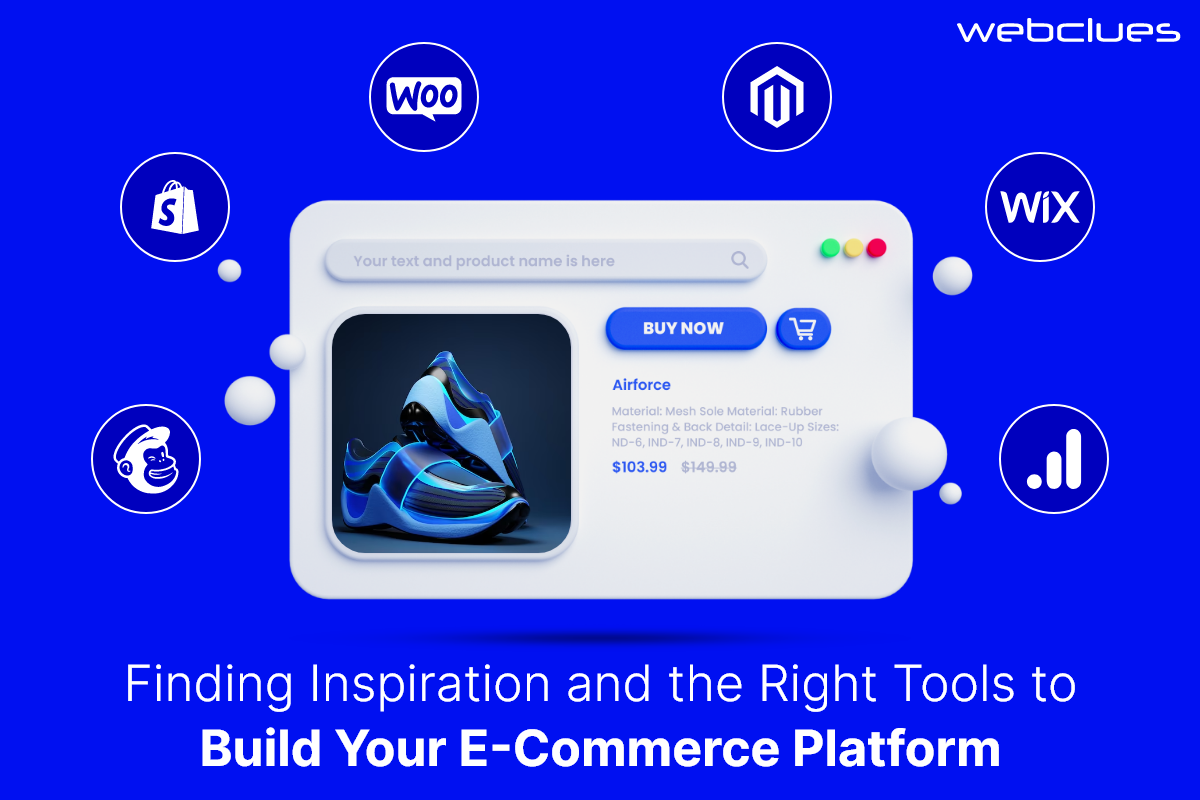
Are you thinking of starting your own online store? Do you have a great product or service that you want to share with the world? In today's fast-paced digital era, the e-commerce landscape is in a constant state of flux, with new opportunities and challenges emerging regularly. Building your online store has never been more enticing or accessible. So if you are wondering, “How can I build my online store?” and think that building your own eCommerce website is too complicated, too expensive, or too risky, think again. With the right guidance and resources and easy accessibility to technology, anyone can do it. Whether you're a seasoned entrepreneur or just dipping your toes into the world of online business, the possibilities are boundless. And the best part is you don't need any coding or design skills to create a beautiful and professional-looking online store.
What every online store needs is some inspiration and some tools. So in this blog, we'll explore the latest inspirations and indispensable tools to help you set up a thriving online store that not only survives but thrives in today's digital marketplace.
How to Find Inspiration for Your Online Store?
Inspiration is everywhere, albeit scattered. Moreover, sometimes you may need a little guidance to find it. Here’s how you can draw inspiration from the abundant online resources.
- Find Your Niche
Your online store's journey begins with a clear vision—a vision that goes beyond personal interests. It's about making a meaningful impact by addressing real problems for your target audience. While your passions may align with your niche, the core focus is recognizing and solving pressing needs and pain points. By choosing a niche grounded in problem-solving, you not only provide valuable solutions but also cultivate deep connections with your customers. This approach sets the stage for a thriving, purpose-driven e-commerce venture where your passion becomes the driving force behind your dedication to enhancing the lives of those you serve.
- Competitor Analysis
Once you've picked your niche, it's time to check out your competition. By studying what they're doing right and where they might be struggling, you gain valuable insights. It's not about copying them but learning from them. This analysis helps you fine-tune your own strategies, find opportunities they might have missed, and make your online store stand out in your niche. In short, it's like learning from the best to become the best.
- Customer Personas
Customer personas are fictional representations of your ideal customers. These detailed profiles include demographics, interests, behaviors, and pain points. They help you understand your audience on a personal level, enabling you to tailor your marketing messages and product offerings to their specific needs and desires. It's like having a roadmap that directs you toward your customers, ensuring that your strategies are precisely aligned with what they seek, ultimately leading to more successful and targeted business decisions.
- Design and Branding
So what does a good online store look like? Essentially, it is crucial to know that Your online store's visual identity matters. Invest in professional branding and web design to create a memorable and trust-inspiring shopping experience. Tools like Canva and Adobe Creative Cloud can assist in designing logos, banners, and other graphics. They make it easier to design eye-catching logos, banners, and other graphics that give your store that extra edge and appeal.
- Customer Success Stories
Take a page from the playbooks of e-commerce trailblazers like Amazon, Shopify, and Etsy, along with up-and-coming entrepreneurs and businesses in your niche. Learn from their approaches to customer service, product presentation, and marketing techniques. Understand how they've carved their own niche in the market. These lessons, grounded in real-world achievements, can be invaluable for e-commerce store development, helping you efficiently reach success.
Important Types of E-commerce Tools
E-commerce is a big and exciting world, but you don’t have to do it alone. There are many tools that can help you with different parts of your online store. Some tools are for things like inventory, teamwork, or social media, but we will focus on the five most important ones. These tools are essential for reaching your goals and making your store a success. Let’s see what these five powerful tools for eCommerce websites are and how they can help you.
E-commerce Website Platforms
Choosing the right platform for your online business is critical as it essentially becomes your website. It will be the digital storefront for your store, impacting everything from product management to customer experience. So, you need to pick a platform that works for you. Consider factors like the variety of products you sell, the level of customization you require, and how user-friendly the platform is. A smooth and easy-to-navigate website is crucial to retain customers. Now, let's explore the key e-commerce platforms that can serve as the foundation for your online store.
- Shopify
Shopify is a user-friendly e-commerce platform, making online store development a breeze, even for non-web designers. You can choose from customizable themes and seamlessly incorporate your brand identity. Shopify's standout feature lies in its all-inclusive functionality—it manages orders, payments, and shipping and helps you create compelling product descriptions. Beyond your website, it enables sales on social media, mobile apps, and even replicating your physical store online—an invaluable option for local businesses. Additionally, Shopify offers hosting services, simplifying your e-commerce journey with an all-in-one solution. You can even consult a Shopify web design company for additional help.
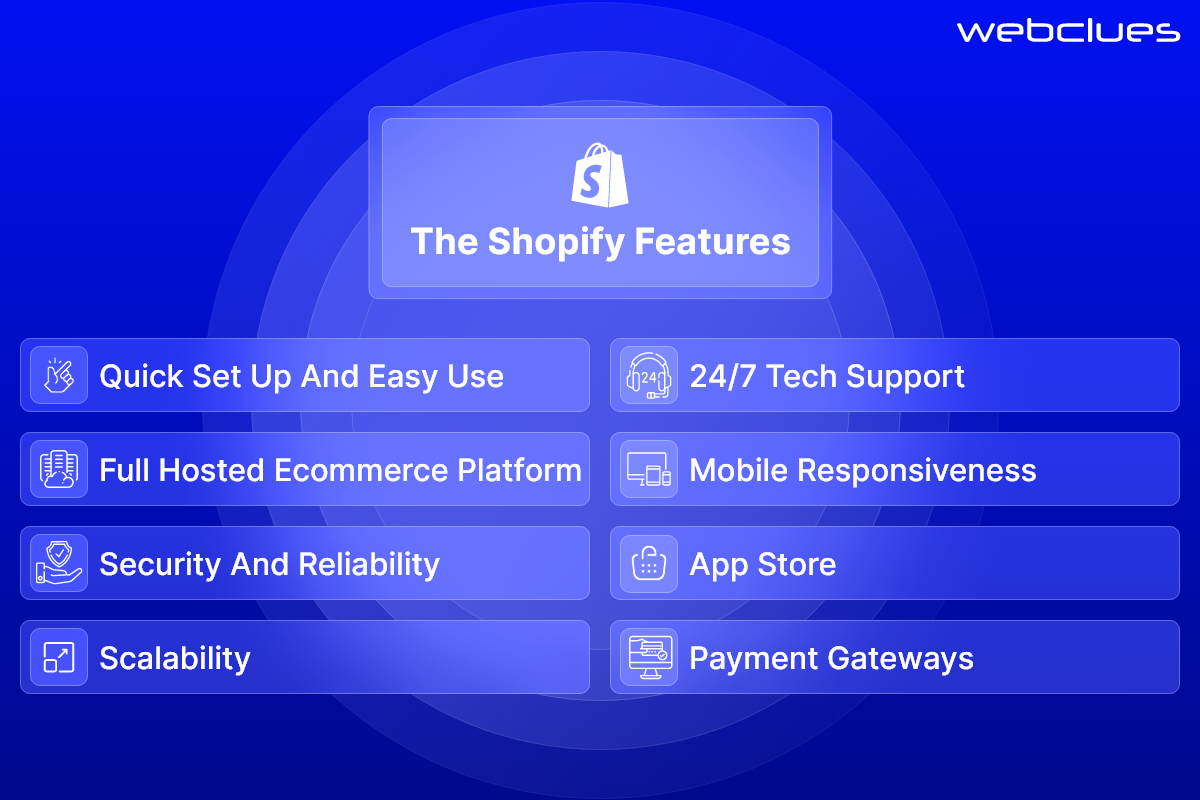
- WooCommerce
If you love WordPress, you'll appreciate WooCommerce—it's like WordPress for online selling, and it's free (except for hosting costs). It's user-friendly with drag-and-drop features for web development. You can also use it for marketing, like placing ads. Plus, it easily connects with Amazon if you want to expand there.
WooCommerce works with plugins, just like WordPress. You can add things like payment options, email marketing, analytics, and even a blog. It's a versatile choice for your online store.
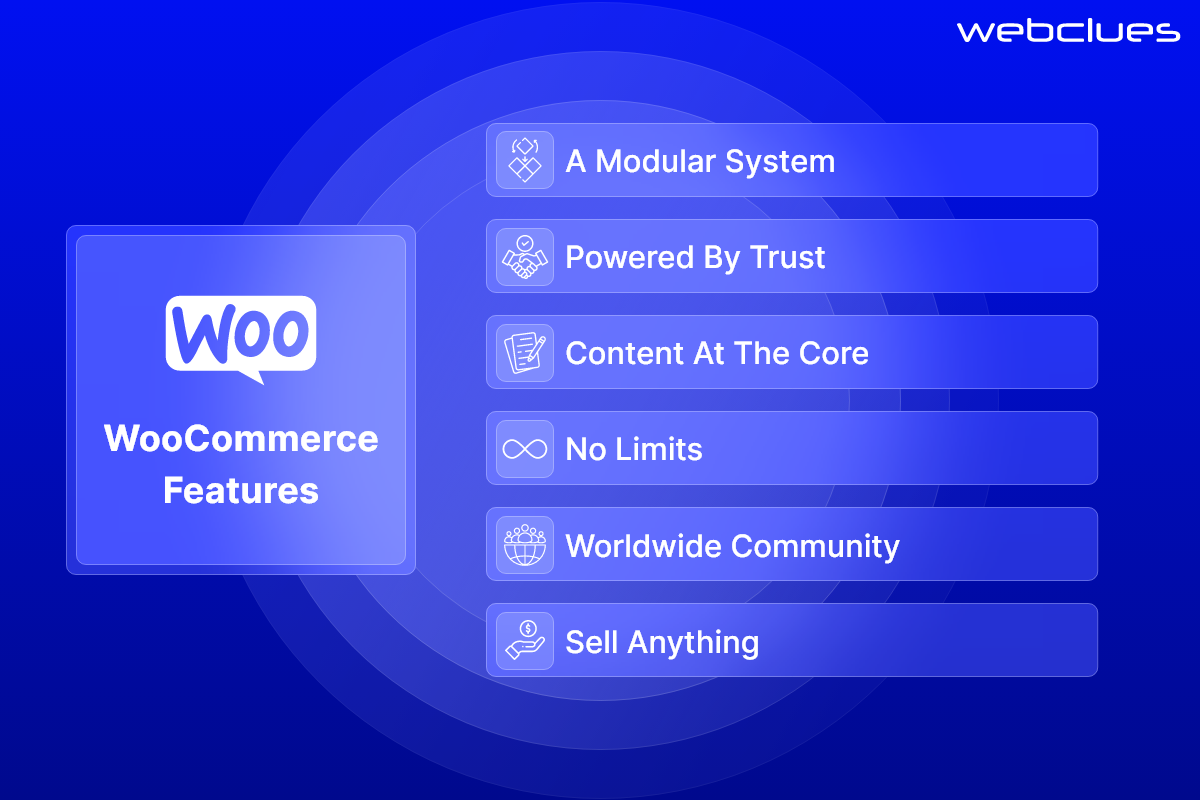
- Wix
Much like WooCommerce, Wix offers an all-in-one solution for building your own eCommerce website from scratch with a wide array of features. It allows you to construct your website without the need for coding skills, and they'll take care of hosting it for you. Wix covers various aspects, including business marketing, payment processing, shipping, and even in-person point-of-sale solutions. Remarkably, it seamlessly integrates e-commerce tools with your primary Wix site, enabling you to incorporate blogs and other content marketing strategies.
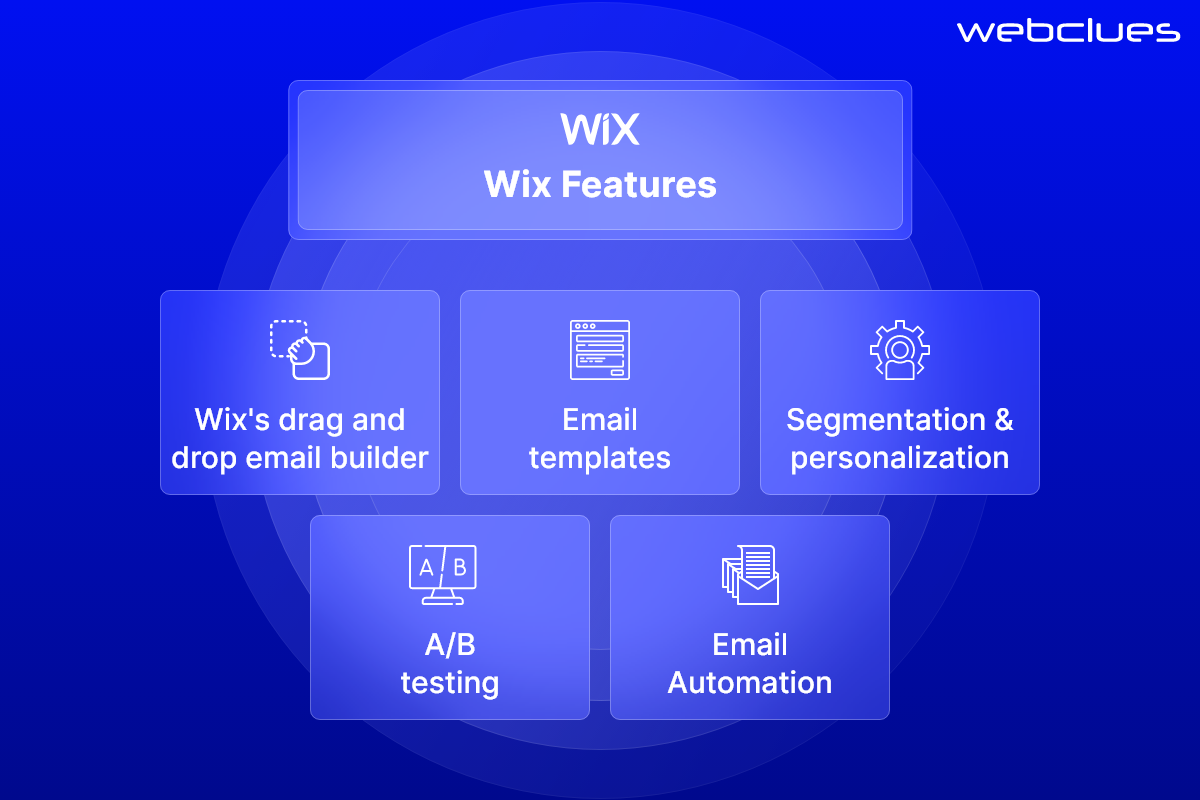
- Squarespace
Squarespace is a versatile platform offering both e-commerce and general website capabilities. It's favored by creative businesses for its user-friendly website creation tools. Additionally, it excels in serving service-oriented businesses, facilitating online scheduling.
For traditional e-commerce ventures, Squarespace provides an extensive toolkit. Alongside essential features like payment processing and inventory management, it includes a handy shipping label function. This integrates with major shipping providers, simplifying the shipping process. Plus, if your business involves in-person sales, Squarespace offers suitable functionalities.
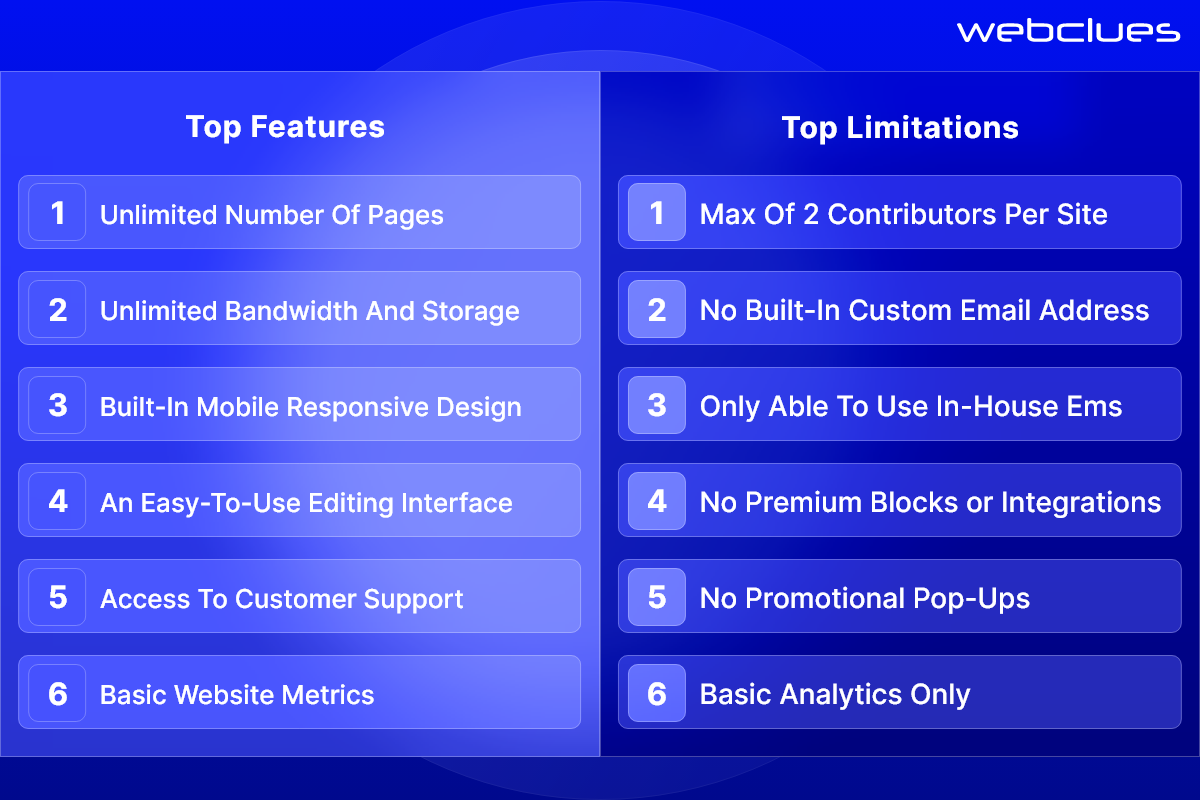
- BigCommerce
BigCommerce is a must-consider for B2B sellers, thanks to its specialized functionalities tailored to accommodate B2B companies and industries. Notably, it offers scalability that can accommodate even larger businesses, making it an appealing choice for growing enterprises and eCommerce development companies. What sets BigCommerce apart is its remarkable flexibility—you have the freedom to customize your website and features to support either a complex or straightforward business model.
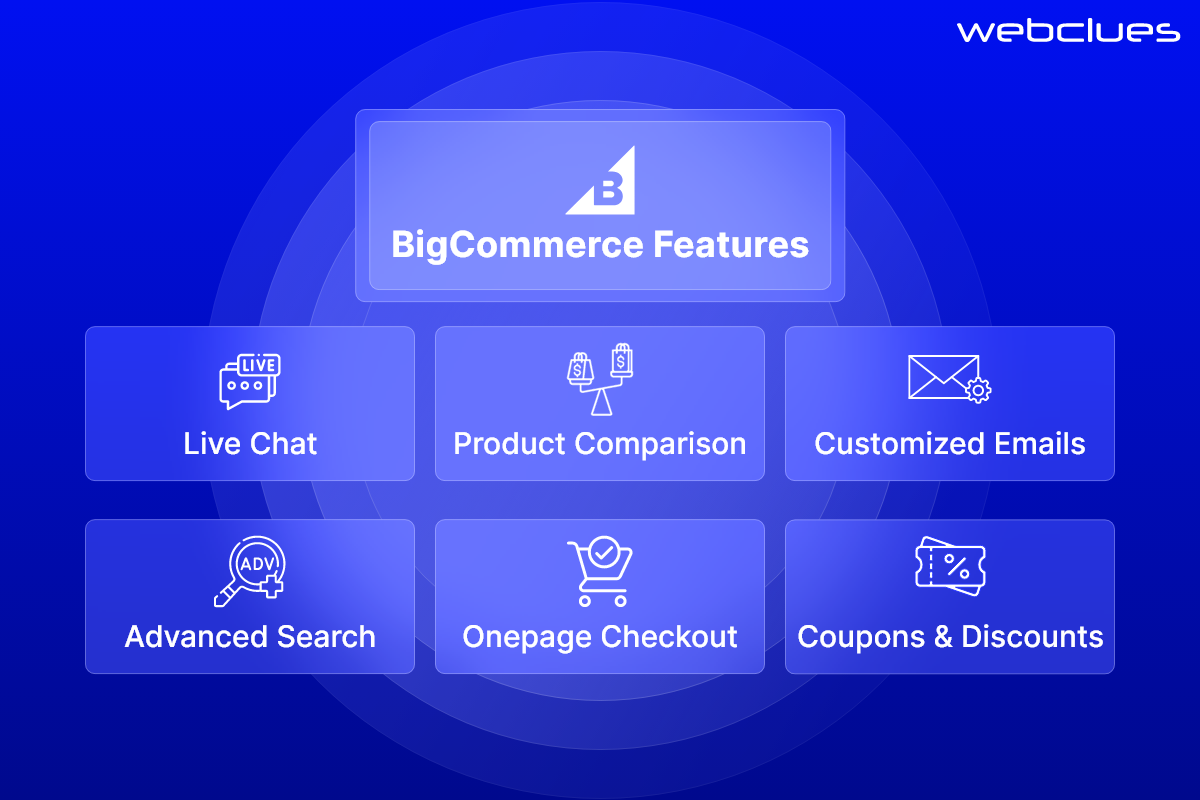
- Email Marketing Tools
In e-commerce marketing, email marketing takes center stage. However, choosing the right technology is a crucial part of eCommerce online store development services. Don't forget about SMS marketing's potential either! Whether it's sending transactional emails with tracking information or holiday campaigns, email marketing is a vital part of your strategy.
However, relying solely on a free email address or basic store email automation might not suffice. Free email providers are strict in preventing spam, potentially leading to account shutdowns. Even for small e-commerce businesses, email marketing is a must—it nurtures customer relationships and handles essential tasks like transactional emails and shipping notifications, beyond the capacity of an individual mailbox. Now, let's explore some top email marketing tools.
- MailChimp
MailChimp covers all the essentials, offering email automation, including transactional and lead-nurturing emails. It also excels in audience segmentation and provides top-notch analytics. Its user-friendly interface is particularly appealing to business owners seeking a hassle-free experience with email marketing.
But what truly sets MailChimp apart is its proprietary algorithm, which predicts the most likely buyers among your audience. This feature empowers you to target the best prospects, resulting in improved ROI for both your email marketing campaigns and online ad targeting efforts. For these reasons, MailChimp ranks among the most valuable e-commerce tools on this list.
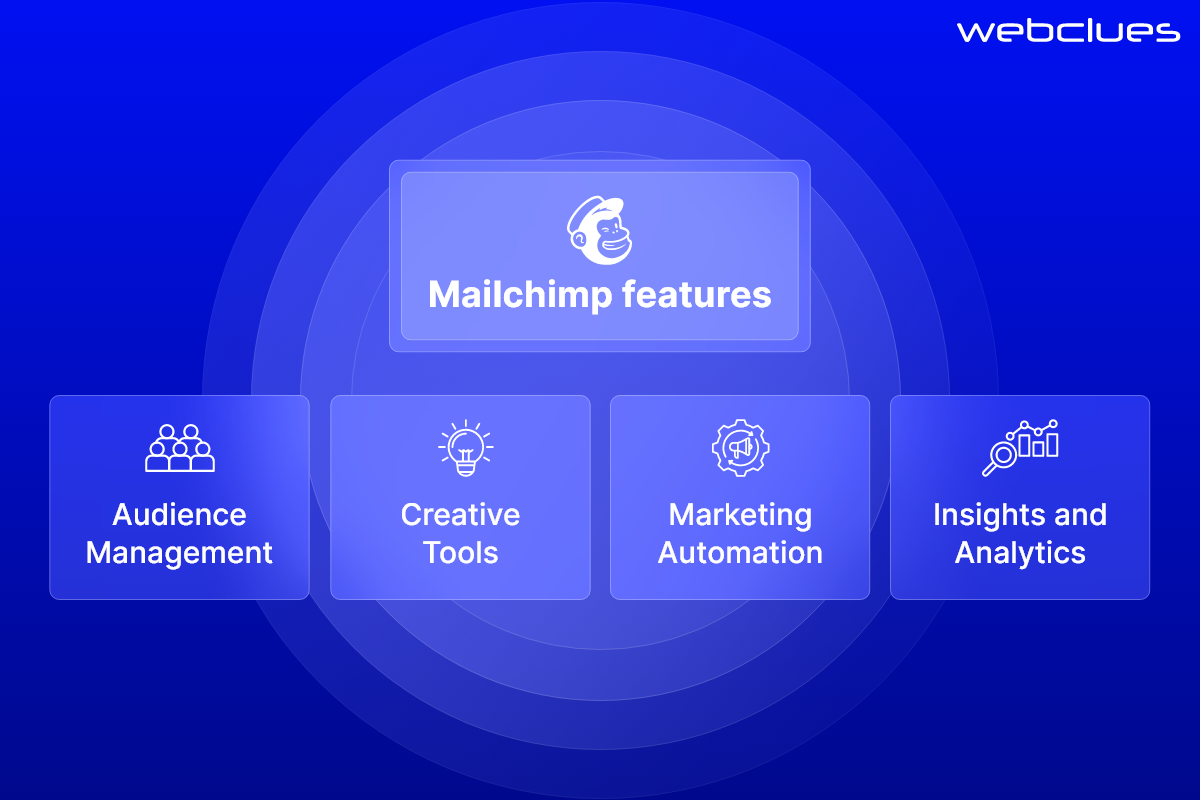
- Klaviyo
In today's smartphone-driven world, where mobile devices are always at hand, many businesses struggle to effectively tap into this trend. However, Klaviyo bridges this gap with its SMS marketing functionality. It doesn't just rely on emails and targeted ads; it also sends promotional text messages. Customers often appreciate this approach, as long as it's not overly frequent from the same sender.
Klaviyo also excels in personalization. While most email tools offer segmentation, Klaviyo takes it up a notch by recommending products based on customer quiz responses. This means it actively works with customer inputs, going beyond passive behavior tracking. This personalized touch makes it particularly effective for e-commerce businesses, especially those catering to a younger consumer base.
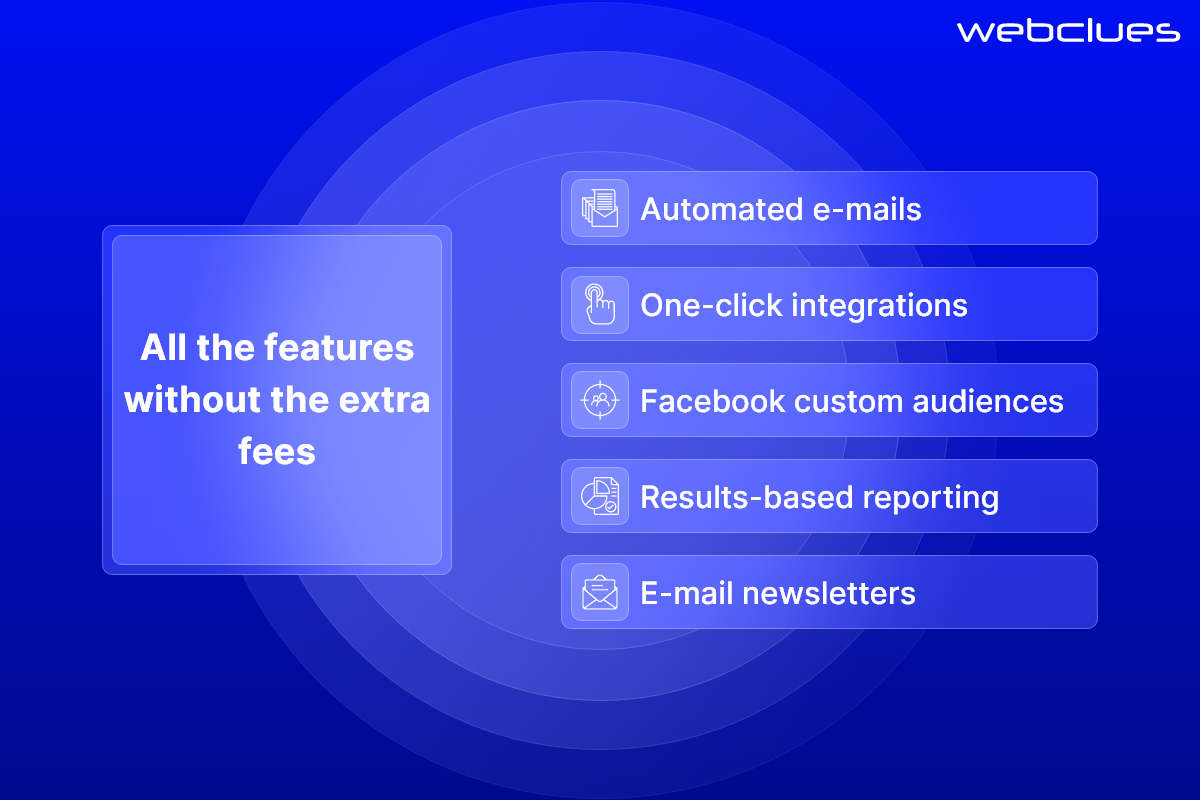
- ActiveCampaign
ActiveCampaign not only covers the essentials but goes above and beyond. While it excels as an email marketing app, what sets it apart is that it's a comprehensive suite of e-commerce tools. Alongside features like triggered email campaigns, analytics, and segmentation, ActiveCampaign offers a CRM (Customer Relationship Management) system. This means you can input customer data once and have it centrally available for multiple processing operations.
For those not familiar with CRM, it's essentially a database of customer information continually updated by sales and marketing professionals. In essence, it functions as an all-in-one sales and marketing tool.
Affiliate & Customer Loyalty Marketing Tools
To boost your e-commerce efforts, online store development services often tap into influencers, be they affiliates or your own customers. Like many e-commerce businesses, retaining customers can be a challenge. Loyalty programs come to the rescue by not only rewarding repeat business but also making customers feel great about their purchases. They might even refer friends, especially if you offer specialty items.
Beyond customer loyalty, engaging affiliate marketers can be highly effective. You compensate them for generating sales, either through a percentage of the sale or a per-customer fee. Offering a special discount for referral link users sweetens the deal and boosts conversions.
Referral Candy
This app empowers customers to become brand advocates by offering them compensation or incentives for making referrals. Customers receive a unique referral link to share on social media, via email, and more. You have the flexibility to choose the type of incentive you offer. A classic option is to provide a "refer a friend" deal, where both the referrer and the referred receive a reward, such as a $10 discount and $10 store credit, or any other amount you prefer.
Alternatively, you can opt for a referral fee or commission model. What's great about ReferralCandy, unlike some other e-commerce tools, is that you only pay for their services when they deliver results.
Smile.io
Smile.io is not just your average referral marketing tool; it's a versatile platform that allows you to construct a loyalty program. With Smile, you can introduce a points system, enabling customers to accumulate points that translate into discounts or free gifts. These points can be earned not only through purchases but also by making referrals or engaging on social media. Moreover, you can implement a tiered VIP program akin to those employed by major retailers. Smile proves that creativity in enhancing customer loyalty isn't exclusive to big e-commerce sites.
Website Analytic Tools
Wondering about your website's performance and how to boost conversions and the customer journey? Site analytics hold the answers, but using them effectively is key. Gathering data is easy with the right e-commerce tools, but it's crucial to select a tool that helps you derive actionable insights from your numbers. Growing websites rely on collecting and analyzing site analytics, covering various performance indicators. With this data, you can drive business growth through actionable insights.
Google Analytics
Google Analytics is a valuable resource available to anyone with a website indexed by Google, and the best part—it's entirely free for site owners. Integrating it into your website's tech stack is a breeze, often requiring just a few clicks on most platforms. It's remarkably user-friendly.
In terms of data, Google Analytics provides all the essentials, including audience demographics and site visit details. Further analysis of this data can be done using other e-commerce tools like your CMS and marketing suite. What's remarkable is that this tool scales seamlessly with your website, catering to sites of all sizes.
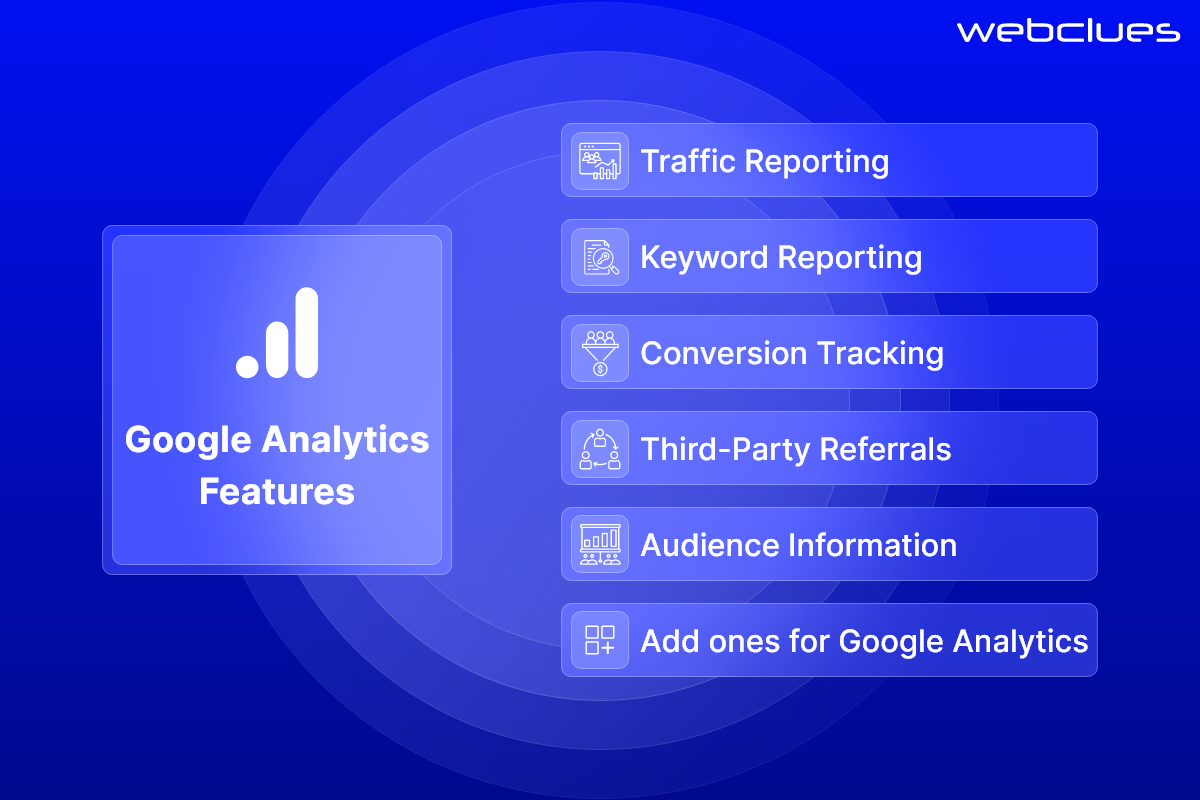
Hotjar
Ever wondered what captures people's attention on your website, aside from tracking their cart contents and page visits? It can be a bit challenging to discern, but luckily, Hotjar comes to the rescue. Among the limited e-commerce tools offering this feature, Hotjar stands out—it allows you to visualize precisely where visitors are looking, even if they don't click on anything. This is achieved through heat maps, which trace the path of customers' gaze across your page. Hotjar doesn't stop at visual tracking; it also comprehensively analyzes consumer behavior. With these insights in hand, you can make data-driven adjustments to boost your sales.
Kissmetrics
Another noteworthy tool for behavioral analytics is Kissmetrics. While it doesn't boast heat maps, it provides in-depth insights into customer interactions on your website. What sets it apart is that it associates this information with specific users, not just anonymous session IDs. The real advantage of Kissmetrics is its ability to track user behavior across various site versions and your mobile app. Whether the same individual views your site on a desktop, phone, tablet, or app, you'll gain a holistic understanding of their interactions.
SEO & Research Tools
Whether you're looking to boost your blog's traffic or enhance your presence on Amazon, thorough research is essential. SEO tools help you optimize your website for better search engine performance, but it all starts with finding the right keywords. Research tools also come into play when identifying high-potential products and uncovering opportunities where demand exceeds supply.
Effective Search Engine Optimization is a cornerstone of running a successful website. Just building it won't suffice; attracting users through search engine results is crucial. Fortunately, these e-commerce tools simplify the path to achieving these goals.
Semrush
Semrush stands out among e-commerce tools by offering a comprehensive suite of features that excel in various domains. First and foremost, it equips you with all the necessary elements for effective SEO operations, encompassing keyword research and insights into how top-ranking sites maintain their positions. Moreover, Semrush provides in-depth competitive analysis spanning the entire web, ensuring you're always aware of potential challengers.
But Semrush doesn't stop at SEO; it's also an excellent ally for managing paid advertising campaigns. As your business expands, this versatile app proves indispensable for a wide array of functions, allowing you to leave your competition trailing in the dust.
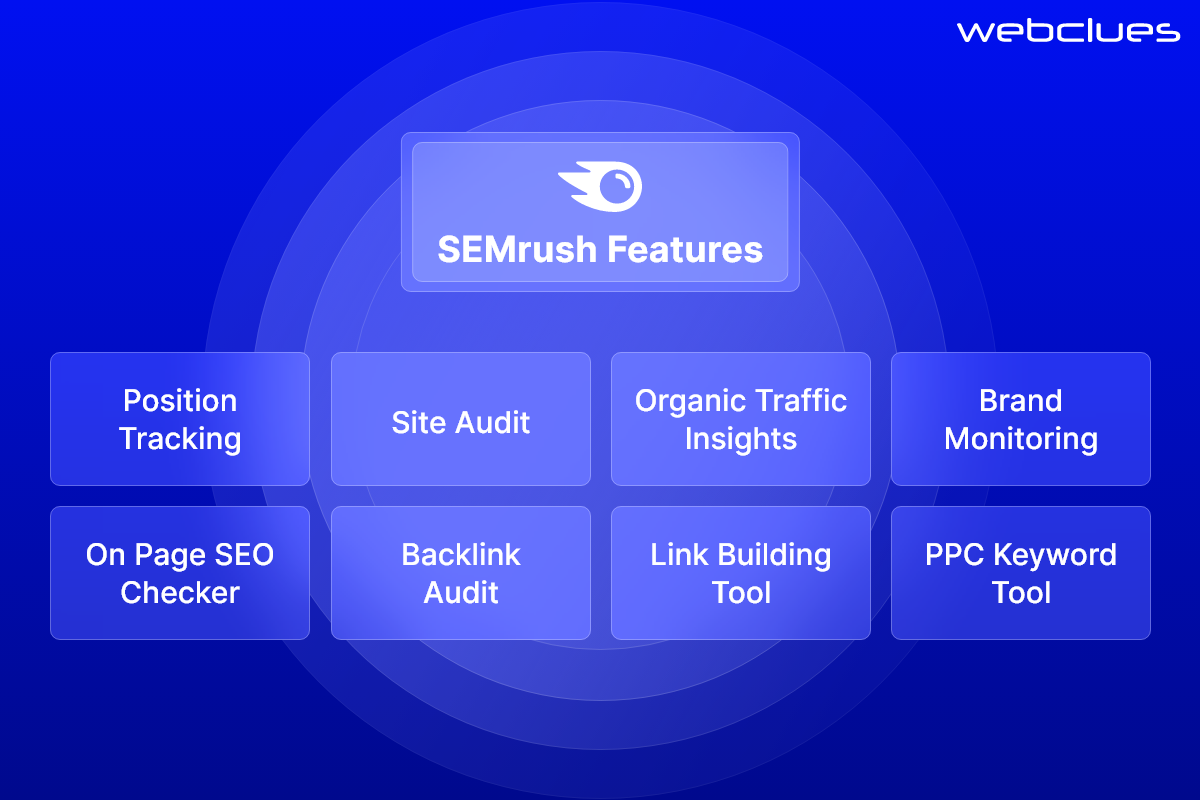
Jungle Scout
Jungle Scout is a powerhouse in competitive analysis, particularly tailored for Amazon sellers. However, its utility extends even to larger businesses that have their products listed on Amazon but don't manage their Amazon presence directly, such as computer manufacturers. Jungle Scout enables you to gain deep insights into your competition's strategies, uncovering opportunities that might have remained hidden otherwise. This tool isn't limited to analysis alone; it can assist with crafting product descriptions, monitoring inventory, and more. Depending on your business model, Jungle Scout might even serve as the primary tool for an FBA (Fulfillment by Amazon) seller.
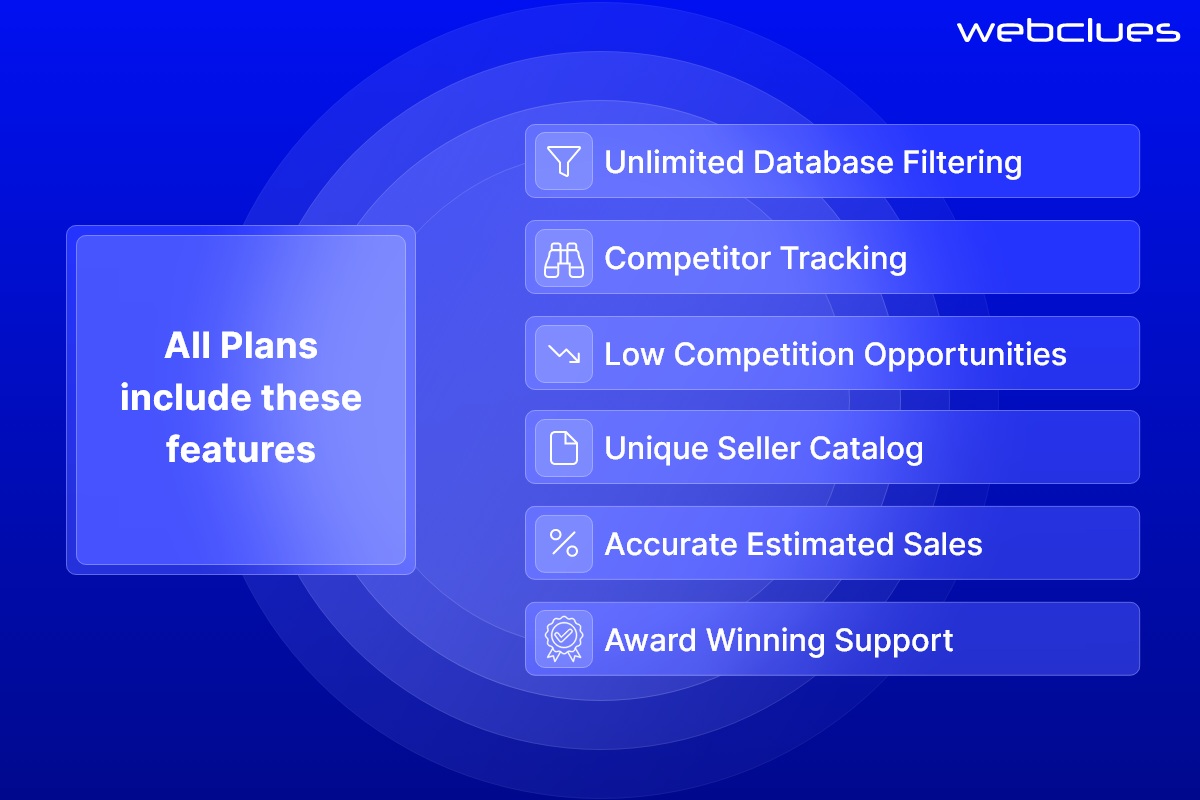
Conclusion
As you start your eCommerce journey, remember that your online store is not just a transactional platform; it's a stage for meaningful connections and memorable experiences. It's about making a mark, not just a sale. Furthermore, running an eCommerce business can be as competitive as it is rewarding. However, by leveraging the right e-commerce tools, you can streamline your operations and increase your chances of success.
These tools serve as valuable allies and help you overcome challenges and make the path ahead smoother. From establishing a strong online presence to managing your inventory and engaging with customers, these tools are designed to simplify your e-commerce operations. Moreover, with the right technology at your disposal, you can enhance your online store, boost your marketing efforts, and ultimately achieve greater success.
Ready to take your e-commerce business to the next level? WebClues Infotech specializes in comprehensive eCommerce development services, including Shopify and Magento eCommerce development services. We offer tailored solutions to help you stand out in the competitive e-commerce landscape. Contact us today and let's set out on this journey together towards e-commerce success!
Build Your Agile Team
Hire Skilled Developer From Us
Build an online store that scales and helps you sustain lasting growth
If you're looking for a tech partner to build your eCommerce website from scratch using the latest and most effective tools, at Webclues, we have the right experience and expertise.
Get a QuoteOur Recent Blogs
Sharing knowledge helps us grow, stay motivated and stay on-track with frontier technological and design concepts. Developers and business innovators, customers and employees - our events are all about you.





